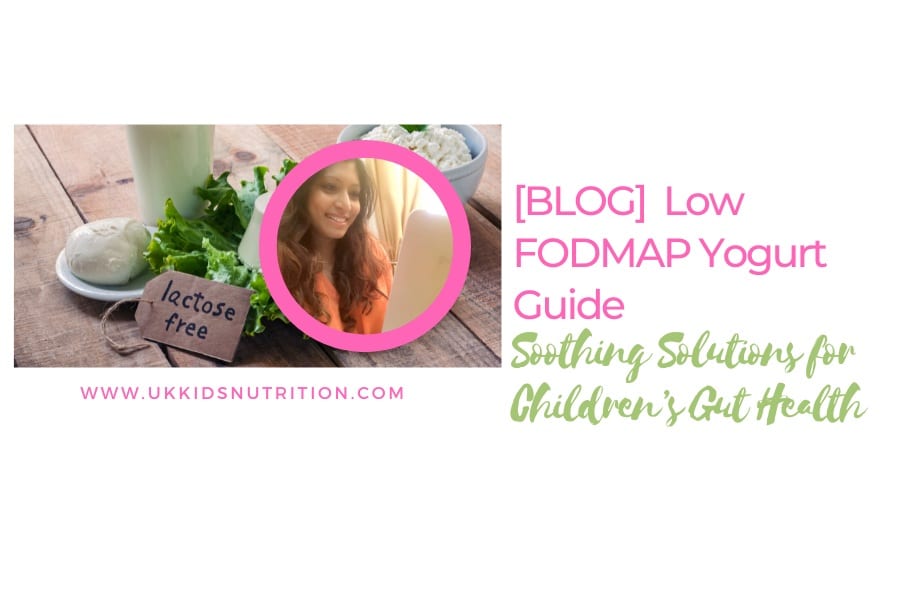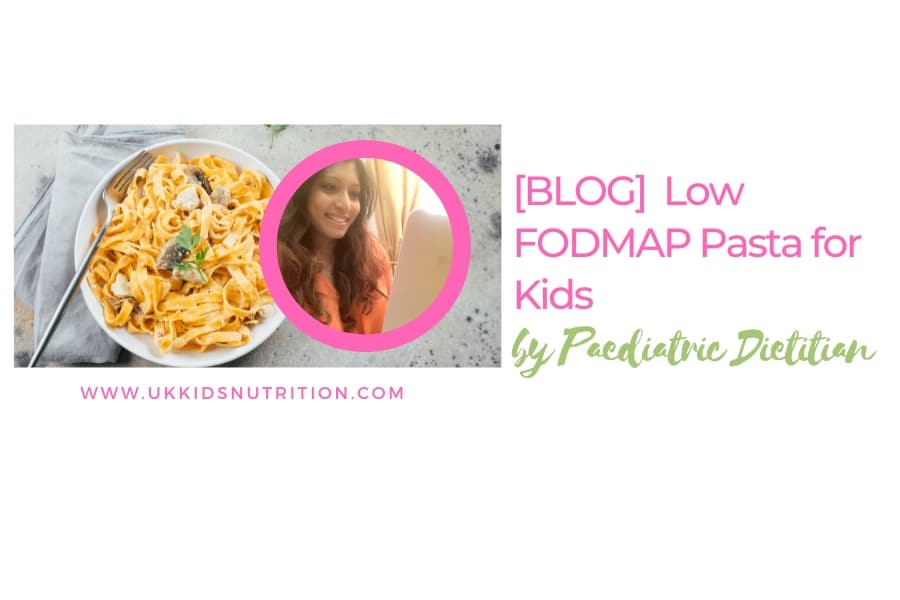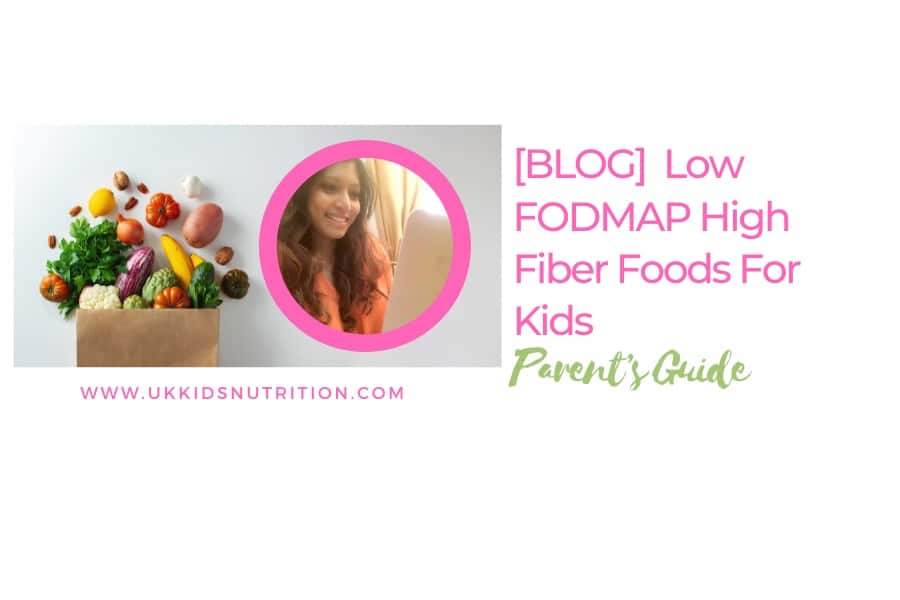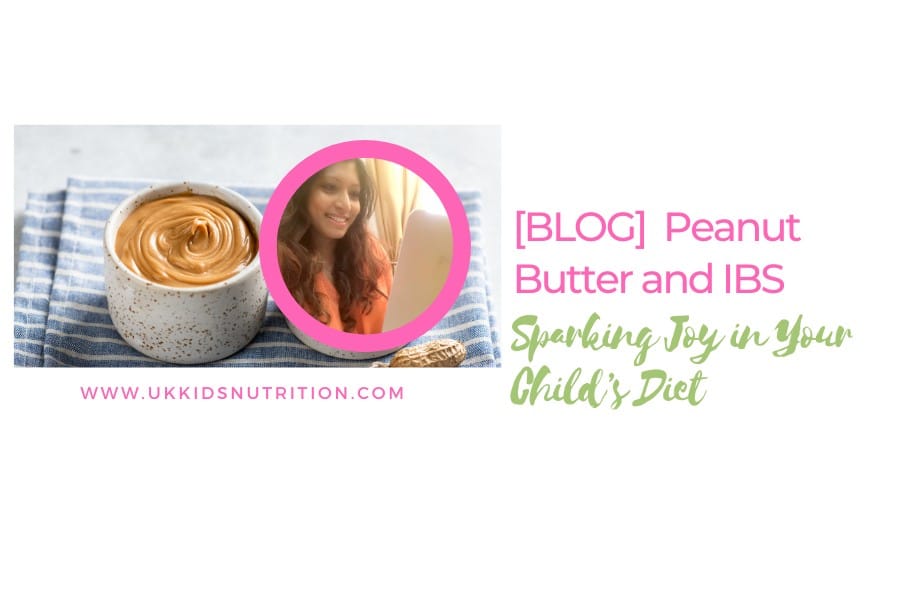Is low FODMAP yogurt helpful for children’s tummy troubles?
As children transition into school life, maintaining optimal gut health is important.
This blog explains how integrating low FODMAP yogurt into their diet can support digestive health for children with IBS or lactose intolerance.
We’ll explore suitable low FODMAP yogurt options your child can eat to alleviate tummy troubles like tummy pain, loose stools or diarrhoea so that your child’s day at nursery and school is comfortable.
Understanding FODMAPs in Yogurt
“Low FODMAP” refers to a diet low in fermentable oligosaccharides, disaccharides, monosaccharides, and polyols.
These short-chain carbohydrates are poorly absorbed in the small intestine and can cause digestive issues in sensitive children.
Following a low FODMAP diet, including consuming low FODMAP yogurt, can help reduce symptoms like gas, bloating, and diarrhoea in children with IBS or lactose intolerance.
What does ‘Low FODMAP’ mean?
All types of yogurt such as plain yogurt, Greek and natural yoghurt are classified as high FODMAP foods because they contain lactose.
Lactose is a carbohydrate that is naturally present in dairy products.
It is also a type of FODMAP.
Most milk yoghurt is classified as high in lactose and therefore high in FODMAP.
Any additional ingredients such as fruit puree, honey or certain types of grains added to yoghurt can also change its FODMAP status.

Is Yogurt Low FODMAP?
Traditional yogurt often triggers symptoms in children with IBS due to its high lactose content.
However, choosing lactose free yogurts or low lactose options can help with digestive symptoms like gas and unexpected loose stools after yoghurt.
For school-aged children dealing with digestive sensitivities related to lactose, selecting the right type of yogurt is essential.
Children with lactose intolerance or irritable bowel syndrome (IBS) may be sensitive to lactose in varying amounts.
Picking yoghurt that is lactose-free or low in lactose can help reduce embarrassing symptoms like gas, tummy pain, leaky nappies and urgency to use the bathroom with diarrhoea.
Low FODMAP Options for Yogurt:
- Lactose free yogurt: ideal for reducing FODMAP intake while retaining the benefits of dairy (such as protein, calcium, iodine and some B vitamins).
- Coconut yoghurt: a dairy free alternative that fits into a low FODMAP diet.
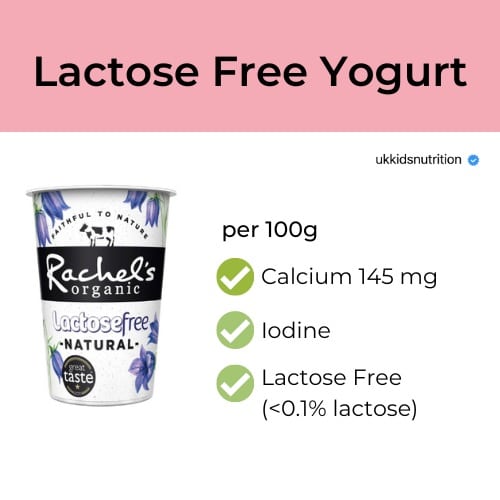
Is Lactose Free Yogurt Low FODMAP?
Dairy-based lactose-free yogurt undergoes a special process where lactase enzymes are added.
This process breaks down lactose into more digestible sugars making it FODMAP friendly.
This adaptation makes the yogurt easier on the digestive system, ideal for children with lactose intolerance.
Opt for lactose-free yogurts that retain essential nutrients like fat, calcium, and iodine, crucial for your child’s growth and health.
Is Greek yogurt low FODMAP?
While Greek yogurt is typically lower in lactose than regular yogurt due to its straining process, it’s not completely lactose-free.
For children with lactose intolerance, selecting lactose-free labeled products is required to control some symtoms.
Despite common beliefs, even some Greek yogurts can be moderate to high in lactose, according to Monash University’s FODMAP research.
Always check labels and opt for certified low FODMAP or lactose-free varieties to ensure they fit within your child’s dietary needs.
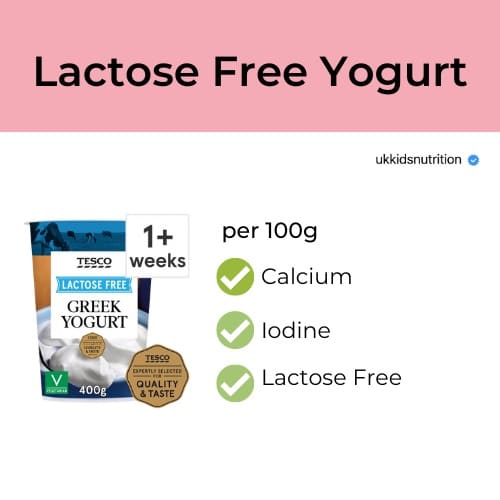
Addressing Cow’s Milk Protein Allergy and Lactose Intolerance
When managing children’s dietary concerns, it’s crucial to differentiate between lactose intolerance and cow’s milk protein allergy.
In lactose intolerance, children lack sufficient lactase enzymes to break down lactose effectively.
For these children, lactose-free dairy products can offer relief without adverse effects. However, for those with a cow’s milk protein allergy, all dairy sources must be strictly avoided, as even lactose-free options may contain milk protein.
Consulting with a paediatric dietitian can provide personalised advice to meet your child’s specific dietary needs.
Identifying Suitable Low FODMAP Yogurts
With cow’s milk protein allergy, your child will need to avoid all sources of dairy (including as an ingredient in bread and other food items).
For children with dietary restrictions, identifying the right yogurt is crucial.
Lactose-free yogurts may suit those with intolerance, but for cow’s milk protein allergy, completely dairy-free alternatives are necessary.
Work with a paediatric dietitian to find safe, nutritious options that align with your child’s health requirements.
Special Considerations for Plant-based yoghurt
While exploring dairy-free yoghurt, remember that soy and other plant-based yogurts may be high in FODMAPs, posing challenges for children with IBS.
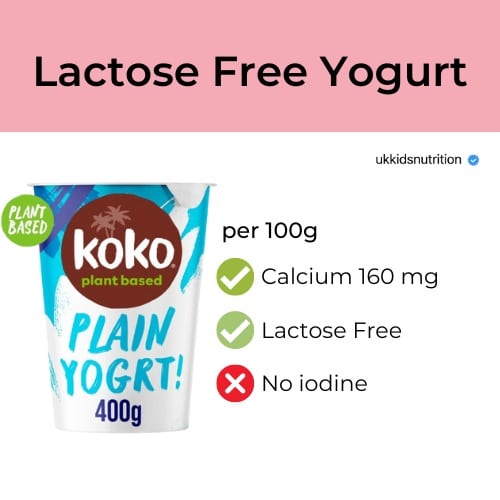
Coconut yogurt
Opt instead for low FODMAP, dairy-free alternatives like coconut yogurt, which is typically better suited for sensitive tummies.
Brands like Koko offer ‘Super Plain’ and ‘Greek Style’ versions that are more gut-friendly.
Is Almond Milk Yogurt Low FODMAP?
Whilst in theory, almond milk-based yoghurt could be an option for children, almond milk yogurts lack sufficient protein and essential nutrients like calcium and iodine.
Always check nutrition labels for a balanced option and consider consulting with a paediatric dietitian experienced in IBS to ensure these yogurts meet your child’s dietary needs.
Choosing the Right Low FODMAP Yogurt
When selecting the best low FODMAP yogurt, consider lactose-free varieties or those with lower lactose content.
Look for brands that specifically label their products as ‘lactose-free’ or ‘low FODMAP’ to ensure they are safe for your child.
Rachel’s Organics and other brands provide lactose-free and lower lactose options, aligning with low FODMAP requirements and supporting children’s digestive health and overall well-being.

Nutritional Benefits Beyond Digestion
Apart from easing tummy troubles, low FODMAP and lactose-free yogurts provide essential nutrients such as calcium, protein, and probiotics, which could also help ease your child’s loose stools and improve gut health.
Opting for plain varieties ensures lower sugar content.
You can add natural flavours with low FODMAP fruits or a drizzle of maple syrup for sweetness.
Including Low FODMAP Yogurt into Your Child’s Diet
Incorporate low FODMAP yogurt into your child’s diet gradually.
Start with small servings and observe how your child responds.
You can use the symptom tracker included in the Healthy Poop Essentials Bundle.
Lactose-free yogurt can be used as a base in smoothies, mixed with fruits for a healthy dessert, or served as a nutritious snack.
While low FODMAP yogurts can significantly alleviate digestive symptoms, every child is unique.
Monitor your child’s reaction to different foods and consult a FODMAP-trained paediatric dietitian to tailor the diet to your child’s needs.

FAQs on Low FODMAP Yogurt
Are Alpro yogurts low FODMAP?
Soy contains FODMAPs.
It doesn’t contain any lactose, but does contain fructans and galacto-oligosaccharides (GOS).
Depending on whether your child is sensitive to these FODMAP groups or not, soy based yoghurt could be a suitable substitute.
Is Natural yoghurt low FODMAP?
Like plain yoghurt and Greek yoghurt, natural yoghurt is also a source of lactose.
It would therefore be unsuitable for children with lactose intolerance.
However, your child may find that they don’t experience runny and loose stools when eaten in small quantities.
For example, you could add up to one tablespoon of yoghurt over their breakfast cereal and record their symptoms in their diary.
Final Thoughts
Navigating your child’s digestive health can be challenging, but understanding the role of low FODMAP yoghurt is a step towards finding relief for their tummy troubles.
By choosing suitable, child-friendly yoghurt options like lactose-free, Greek, or coconut yoghurt, and integrating them wisely into their diet, you can help manage symptoms and improve their overall well-being.
For more guidance on FODMAP-friendly diets and managing lactose intolerance in children, stay tuned to our blog for updates and expert nutrition advice.

Let Me Help
If your child is battling constipation, bloating, or tummy pain, the Happy Belly Formula can help.
Join our 1-2-1 Happy Belly Club or book a discovery call to learn more about our program tailored to support your child’s journey to better gut health and well-being.
- 1-2-1 Happy Belly Club
- Or book a discovery call to learn more about the programme
